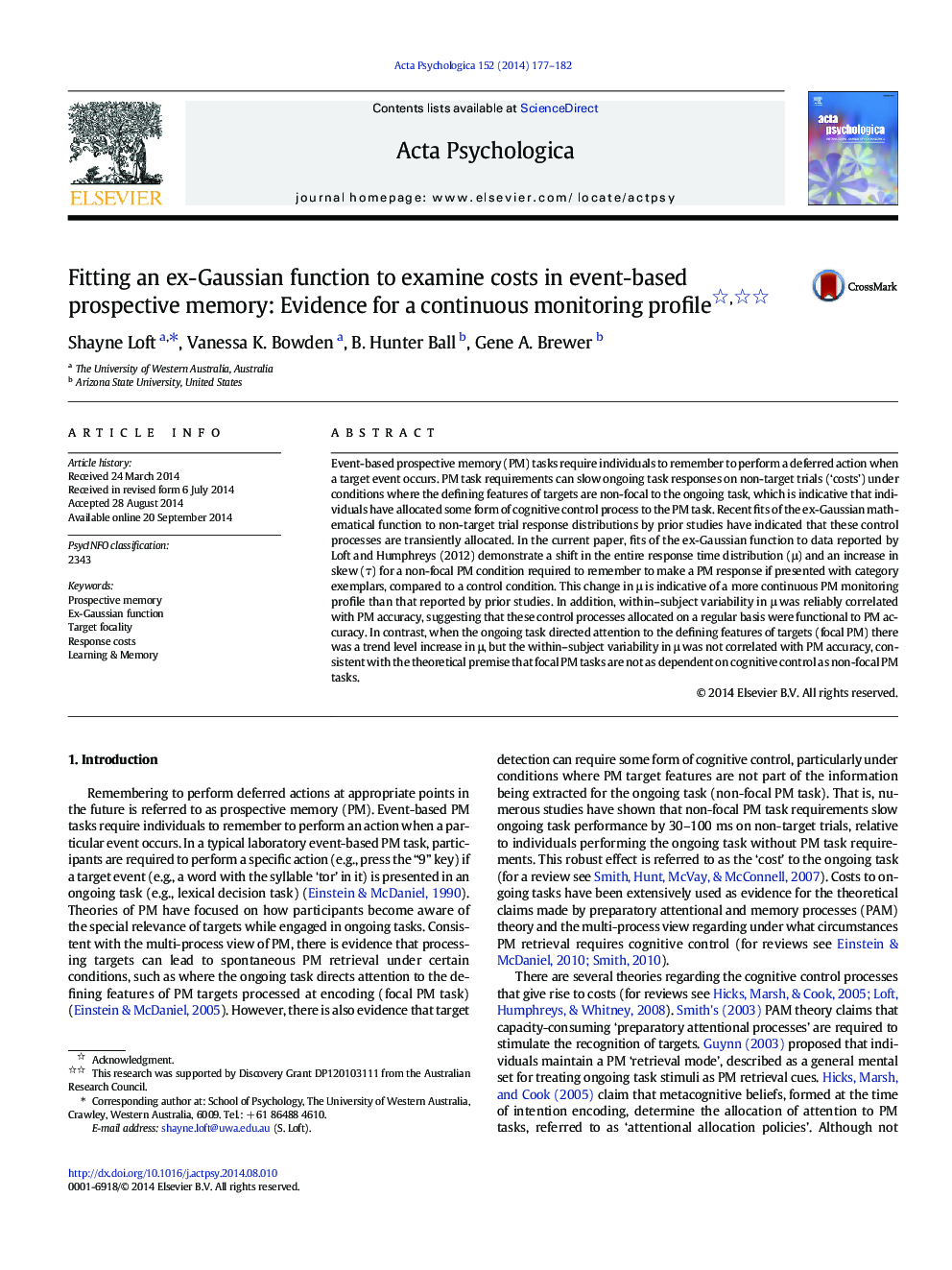| Article ID | Journal | Published Year | Pages | File Type |
|---|---|---|---|---|
| 919798 | Acta Psychologica | 2014 | 6 Pages |
•Non-focal event-based prospective memory tasks slowed ongoing task responses.•We fitted the ex-Gaussian function to ongoing task response time distributions.•The shift in mu indicated prospective memory resources were regularly allocated.•The shift in tau indicated further resources were allocated on a subset of trials.•The shift in mu, but not tau, facilitated (correlated with) prospective memory.
Event-based prospective memory (PM) tasks require individuals to remember to perform a deferred action when a target event occurs. PM task requirements can slow ongoing task responses on non-target trials (‘costs’) under conditions where the defining features of targets are non-focal to the ongoing task, which is indicative that individuals have allocated some form of cognitive control process to the PM task. Recent fits of the ex-Gaussian mathematical function to non-target trial response distributions by prior studies have indicated that these control processes are transiently allocated. In the current paper, fits of the ex-Gaussian function to data reported by Loft and Humphreys (2012) demonstrate a shift in the entire response time distribution (μ) and an increase in skew (τ) for a non-focal PM condition required to remember to make a PM response if presented with category exemplars, compared to a control condition. This change in μ is indicative of a more continuous PM monitoring profile than that reported by prior studies. In addition, within–subject variability in μ was reliably correlated with PM accuracy, suggesting that these control processes allocated on a regular basis were functional to PM accuracy. In contrast, when the ongoing task directed attention to the defining features of targets (focal PM) there was a trend level increase in μ, but the within–subject variability in μ was not correlated with PM accuracy, consistent with the theoretical premise that focal PM tasks are not as dependent on cognitive control as non-focal PM tasks.
